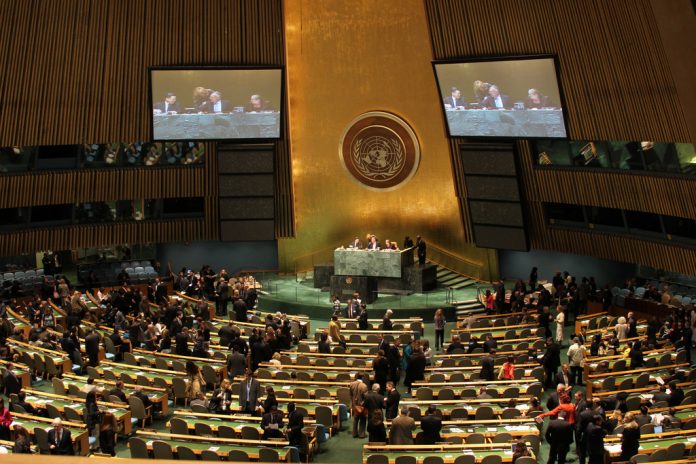Turkey appears to have greater diplomatic leverage in Albania than Washington these days.
The UN General Assembly Resolution condemning Washington’s move of the US Embassy to Jerusalem on December 21st was seen as a considerable defeat for the Trump administration.
Divided Europe
However, the vote continues to divide both the European Union and its neighbourhood. The Visegrad Four – Slovakia, the Czech Republic, Poland, Hungary – Romania, Latvia and Croatia abstained rather than vote against Washington. Romania, Slovakia, and the Czech Republic are according to Israeli media reflecting on the possibility of following Washington’s lead to move their embassies to Jerusalem.
The issue is not only decisive within the EU, but also around the EU. Turkey co-sponsored with Yemen the draft resolution which calls on all countries to refrain from establishing diplomatic missions in Jerusalem. But, Ankara did more than sponsor the resolution. There is evidence of intense lobbying in the Western Balkans, especially Albania.
Pressure in the Balkans
One of the bigger “sticks” Washington waved in anticipation of the vote was US funding for the United Nations as well as the threat to withdraw development aid from states that would condemn Washington. One of the natural targets for such a vote would be Western Balkan states, especially Albania.
Albania found itself being pressured on the same UN vote from Ankara, Brussels and Washington. It is telling that the country regarded as a champion of Atlanticism in the region – not least because of Kosovo – was neither among the nine that voted against the resolution nor amongst the 35 that abstained.
According to Albanian media, this was down to Turkish lobbying.
Ankara’s lobbying more effective than Washington’s
The Albanian outlet Hashtag.al makes reference to a “reliable diplomatic source” that claims that Ankara stepped in to facilitate the vote by extending a private $500 million loan to government linked business circles. According to Syri.net, on the day of the vote, the Albanian Energy and Infrastructure Minister Damian Gjiknuri was in Turkey as a guest of honour of a Turkish business consortium (Kalyon Group) negotiating a $1.4bn investment project.
It appears that Ankara’s diplomatic leverage in Tirana has been more significant than Washington’s in this case. The question now is whether Albania can expect retribution from Washington, where USAID alone has spent hundreds of millions of dollars since 1992, while Washington also extends military aid and diplomatic support that is largely responsible for Albania’s NATO membership.
The choice of the Albanian government has already triggered the reaction of both the opposition and the country’s President, Ilir Meta. His office issued a statement suggesting that the government acted without consulting the President in a manner that was “entirely unnecessary” jeopardizing the relationship with Albania’s “most strategic partner.” President Meta sent a letter to the US President Donald J. Trump, expressing his regret for the vote of the Albanian government.
Perhaps the broader picture is that as the Euro-Atlantic “community” is being divided, the European periphery is becoming “fair game” for diplomatic influence. That Albania is open for business may be telling of a wider crisis.

